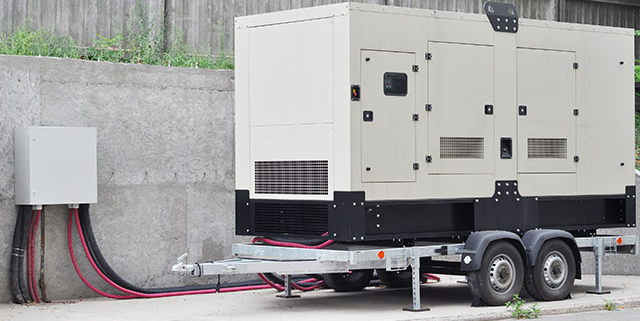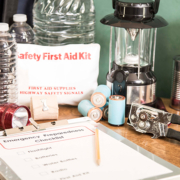Can Your Business Survive Without A Backup Power Supply?
As a business owner, understanding and adapting to the concept of downtime is crucial. This is the amount of time that your business isn’t at peak operating efficiency, and work is stopping because a problem prevents your team from using the tools or equipment they rely on.
While downtime is often used in the context of technology and internet problems, the power supply can play an important role in it as well. Power cuts aren’t just tedious; they could be costing the business money. That’s why we’re going to look at the need for backup power.
Why Your Business Needs Backup Power
The latest hurricanes such as Irene, Sandy, and Irma have all caused property damage and also losses of money by cutting the power supply to business and homes across the east coast. Millions of dollars can be lost because of these cuts, and it could put the business in real trouble. Here are some of the reasons you need backup power:
· Weather disasters: From blizzards to hurricanes can knock out the electricity supply.
· Power line faults: Animals coming into contact with power lines are the most frequent example of why power lines fail, cutting you from the supply.
· Short circuits: When the insulation of the wiring breaks down in the building, due to age, wear, or pest interference, it can short-circuit the supply.
Brownouts and blackouts can affect huge areas, reducing or cutting the power supply. It can take a long time for providers to find out exactly what caused the issue and to fix it. While you’re waiting, the business is losing money. Backup power generators help you keep the business on its feet, so you can work without worrying about what the electricity supplier is doing.
Types of Backup Power
It’s wise to assess the business’s risk and to get a backup power supply to ensure you never cope with the impact of long periods of downtime. There a range of different backup power supply types to help you meet your needs, including the following:
- Portable generators are some of the most appropriate because they can provide the power supply for short periods; however, they are manual and require the operator’s involvement. Their portable nature makes them versatile though.
- Standby generators are often larger, plugged into the power system directly, and will automatically turn on as soon as the principal power supply is cut off. These generators can be costly but can run on different kinds of energy to help you cut the costs of operation.
- UPS, or uninterruptible power supplies, ensure power cuts don’t damage sensitive equipment such as PCs and digital technology. They provide power for some minutes, giving you time to back up work and to shut down the equipment safely. They are a more of a protective measure than a general backup power supply.
Whether you use one of the three options above or use a combination of a UPS with a different kind of backup generator depends on which equipment you use and what risks the business faces if a power cut happens, so consider your needs carefully before deciding.
Ensuring You Choose The Right Backup Power Supply
Finding the most cost-effective type of backup power supply for the business is crucial before you begin the installation process. Here are a few things that the average business owner needs to consider when choosing the right supply:
- How much power does the business use? The most accurate way to size a generator is using the historical consumption often provided by the power company. Using this information, a business owner can avoid oversizing the generator, ultimately saving money.
- Where is the generator being installed? National, State, and Municipal regulations dictate the appropriate place to install a generator. These regulations can sometimes complicate the installation by requiring the generator to be farther away from the electrical service, ultimately increasing the cost of making a portable generator is the most cost-effective option.
- Some businesses such as assisted living facilities have recently been mandated to install stand-by backup power. Diligent business owners are taking the appropriate measures to ensure compliance and avoid fines and penalties.
Every business is different, so make sure you’re choosing the backup power supply to meet all your needs. EmPower Generators can help you decide, so get in touch at 954-922-3800 to start exploring some options.







